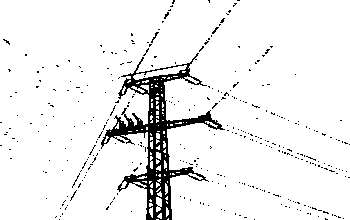Utility trailers are indispensable assets in Ontario, serving various purposes from construction sites to farmlands. Understanding their integral role requires recognizing both their functionality and maintenance needs. This comprehensive guide delves into essential practices for maintaining utility trailers in Ontario, ensuring optimal performance and longevity. From regular inspections to safety measures, these tips empower owners to keep their trailers in top condition, enhancing efficiency and safety on the road. Discover the key steps to reliable utility trailer ownership nearby.
- Understanding Utility Trailers: Their Role and Common Uses in Ontario
- Regular Inspection Checklist for Optimal Trailer Condition
- Maintenance Tasks to Ensure Safe and Efficient Operation
- Essential Cleaning Practices to Prolong Trailer Lifespan
- Addressing Common Issues and Wear and Tear
- Safety Measures and Regulatory Compliance for Utility Trailers
Understanding Utility Trailers: Their Role and Common Uses in Ontario
Utility trailers are an integral part of the landscape in Ontario, serving as versatile workhorses for both residential and commercial needs. These trailers, often seen on rural roads and bustling city streets alike, play a crucial role in transporting and hauling various items, from heavy construction materials to lawn equipment and even boats. In Ontario’s diverse terrain, utility trailers provide a practical solution for folks living in suburban areas or country towns who require additional space for their tools, vehicles, or recreational gear.
Commonly used by homeowners for gardening tasks, DIY projects, and seasonal storage, these trailers also find application in the agriculture sector and construction industries. With easy access to major highways and diverse terrain, Ontario’s utility trailer users benefit from increased mobility, making them a staple in the province’s everyday transportation and logistics scene.
Regular Inspection Checklist for Optimal Trailer Condition
Regular inspections are key to maintaining your utility trailer in top condition and ensuring safe operation. Before each use, create a checklist that includes fundamental checks like tire pressure and tread wear, lighting functionality (brake lights, turn signals), and wheel bearing tightness. Pay special attention to the trailer’s hitch and safety chains—ensuring they’re properly adjusted and secure is vital for preventing accidents while towing.
Additionally, check for any signs of rust or corrosion, especially in damp environments common around utility trailers nearby. Inspect the floor for cracks or damage, as well as the trailer’s overall structural integrity. Keeping a meticulous inspection record can help identify potential issues early on, minimizing costly repairs and maximizing your trailer’s lifespan.
Maintenance Tasks to Ensure Safe and Efficient Operation
Regular maintenance is key to ensuring safe and efficient operation of utility trailers in Ontario, no matter if you’re using them for personal or commercial purposes. A few simple tasks can go a long way in preventing accidents and prolonging the lifespan of your trailer. Begin with a thorough inspection, checking all components including lights, brakes, tires, and hitch connections for any signs of wear or damage. Addressing issues early on prevents more serious problems down the line, keeping you safe on Ontario’s roads and saving you money in the long run.
Additionally, maintaining proper fluid levels is crucial. This includes brake fluid, engine oil, and coolant. Keep an eye out for leaks and address them promptly to avoid costly repairs. Regularly lubricate hinges and other moving parts to ensure smooth operation. Lastly, don’t forget about cleaning and organizing your trailer interior. Keeping it free from clutter not only enhances accessibility but also prevents potential hazards that could occur during transport of utility trailers nearby.
Essential Cleaning Practices to Prolong Trailer Lifespan
Proper cleaning is a fundamental practice for maintaining utility trailers in Ontario, ensuring their longevity and optimal performance. Regular cleaning routines help to protect against rust, corrosion, and debris build-up, all of which can compromise the structural integrity of the trailer over time. Start by hosing down the entire trailer to remove loose dirt and grime, paying close attention to wheels, axles, and any storage compartments.
Use mild soap and warm water for a thorough wash, avoiding harsh chemicals that could damage the trailer’s finish. For hard-to-reach areas, consider using a soft brush or sponge. After cleaning, rinse thoroughly with clean water and dry the trailer using absorbent cloths or towels to prevent water spots and staining. This simple yet effective cleaning process will not only keep utility trailers nearby looking their best but also contribute to their overall durability.
Addressing Common Issues and Wear and Tear
Utility trailers are a staple for many businesses and individuals in Ontario, serving as versatile workhorses for transporting goods and equipment. However, like any vehicle or machinery, they require regular maintenance to address common issues and wear and tear. One of the most frequent problems is flat tires, which can be caused by potholes, uneven road surfaces, or overloading. Regular checks of tire pressure and condition are crucial to prevent unexpected breakdowns and ensure safe operation.
Another area that demands attention is the trailer’s hitch and safety chains. Over time, these components can become loose or corroded, compromising the trailer’s stability during transport. It’s essential to inspect them for any signs of damage or wear and replace them promptly if necessary. Maintaining proper lubrication on moving parts, such as wheel bearings and hinges, also helps reduce friction and prolongs their lifespan. Regular cleaning and inspection of the trailer body are equally vital to identify and address potential issues before they escalate, keeping your utility trailers nearby in top-notch condition for years to come.
Safety Measures and Regulatory Compliance for Utility Trailers
When owning or operating a utility trailer in Ontario, safety measures and regulatory compliance are paramount. Ensure that all lights, signals, and reflective markings are in working order to enhance visibility on Ontario’s roads. Properly secure loads to prevent shifting during transport, adhering to weight limits and size restrictions specified by the Ministry of Transportation (MTO). Regular inspections are crucial; check tires, brakes, hitches, and electrical systems for any signs of wear or damage before each use, ensuring both safety and legal adherence.
Utility trailers nearby often face diverse road conditions, so robust safety features are essential. Implement braking systems that comply with MTO standards to mitigate the risk of accidents, especially in emergency situations. Keep up-to-date with the latest regulations and safety guidelines from the MTO to stay informed about any changes that could impact your trailer’s operation and maintenance. Compliance not only ensures the safety of drivers, passengers, and other road users but also helps avoid hefty fines and potential legal issues.
Utility trailers are an essential part of Ontario’s transportation infrastructure, serving various purposes across industries. To ensure their longevity and safety, regular maintenance and adherence to best practices are crucial. By implementing the tips outlined in this article, including thorough inspections, proper cleaning, and addressing common issues, owners and operators can keep utility trailers in optimal condition. Staying proactive enhances efficiency, reduces downtime, and ensures these versatile vehicles remain reliable assets for years to come, catering to the diverse needs of Ontario’s businesses and communities.




